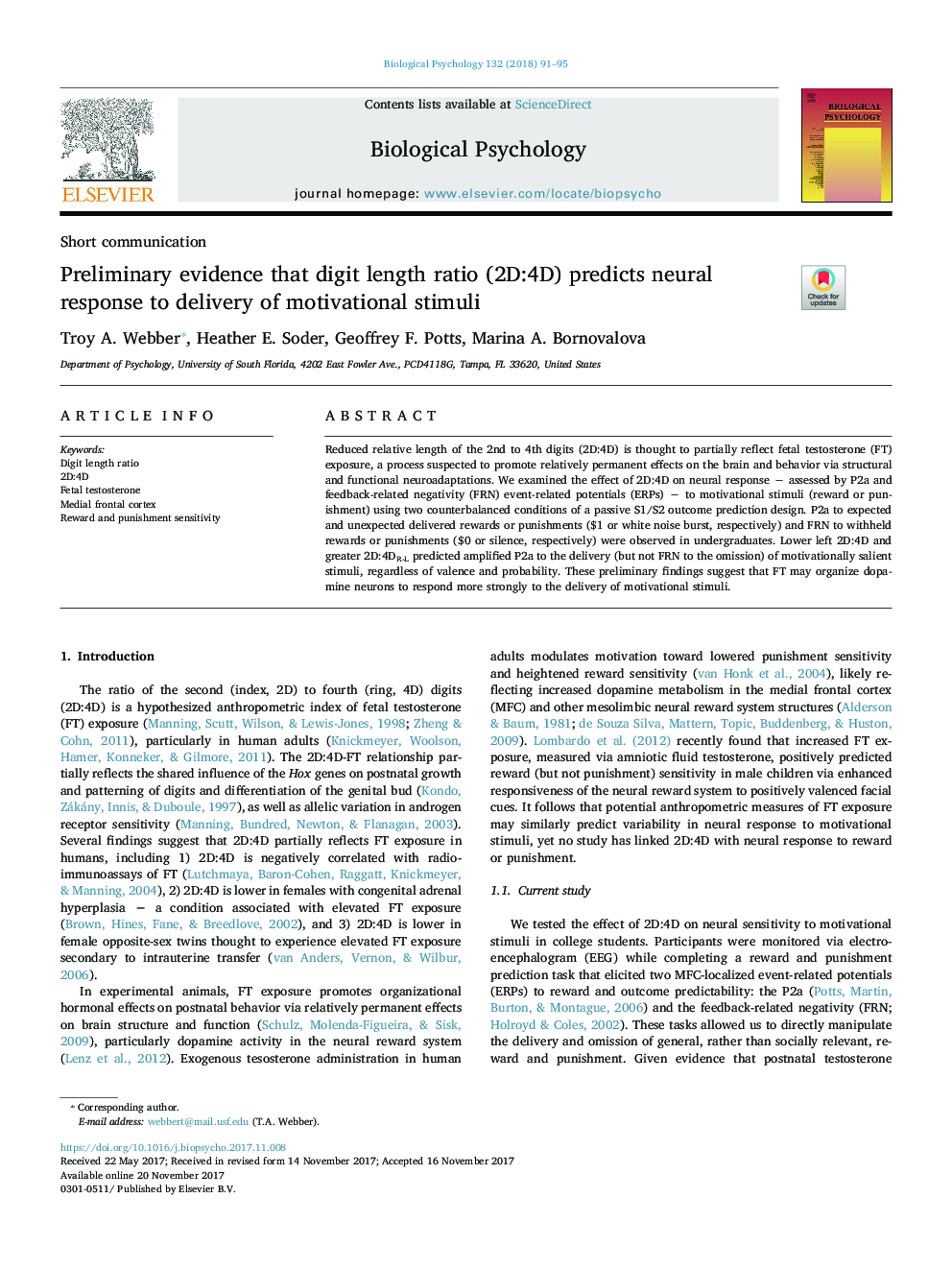| Article ID | Journal | Published Year | Pages | File Type |
|---|---|---|---|---|
| 7278199 | Biological Psychology | 2018 | 5 Pages |
Abstract
Reduced relative length of the 2nd to 4th digits (2D:4D) is thought to partially reflect fetal testosterone (FT) exposure, a process suspected to promote relatively permanent effects on the brain and behavior via structural and functional neuroadaptations. We examined the effect of 2D:4D on neural response â assessed by P2a and feedback-related negativity (FRN) event-related potentials (ERPs) â to motivational stimuli (reward or punishment) using two counterbalanced conditions of a passive S1/S2 outcome prediction design. P2a to expected and unexpected delivered rewards or punishments ($1 or white noise burst, respectively) and FRN to withheld rewards or punishments ($0 or silence, respectively) were observed in undergraduates. Lower left 2D:4D and greater 2D:4DR-L predicted amplified P2a to the delivery (but not FRN to the omission) of motivationally salient stimuli, regardless of valence and probability. These preliminary findings suggest that FT may organize dopamine neurons to respond more strongly to the delivery of motivational stimuli.
Related Topics
Life Sciences
Neuroscience
Behavioral Neuroscience
Authors
Troy A. Webber, Heather E. Soder, Geoffrey F. Potts, Marina A. Bornovalova,
